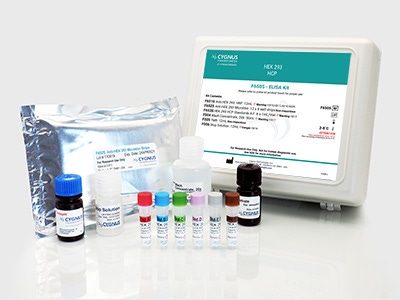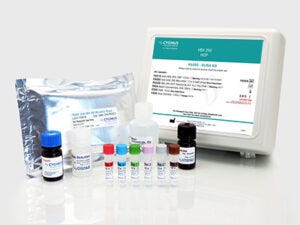Content Spotlight
Podcast: MilliporeSigma says education vital to creating unbreakable chain for sustainability
MilliporeSigma discusses the importance of people, education, and the benefits of embracing discomfort to bolster sustainability efforts.
April 26, 2022

Sponsored Content
Viral vector manufacturing processes require rigorous analytics, including testing for process-related impurities such as host cell proteins (HCP), host cell DNA, growth media additives and enzymes used in viral vector purification processes [Cellular and Gene Therapy Guidances].
Even after multiple purification steps, significant levels of HCP impurities can be present. While low levels of most impurities can be inconsequential, patient safety demands that HCPs be eliminated or reduced to the lowest levels practical to prevent problems such as adverse immune reactions or other off-target biological effects.
Impurities can have significant cost implications in drug development and manufacturing processes and negatively impact stability. By identifying HCPs early on, companies can reduce process development costs, better assure product efficacy and safety, and help promising technologies get to market faster.

A robust and broadly reactive HCP immunoassay is a critical tool for monitoring purification process consistency as well as final viral vector purity and is the gold standard method for process monitoring and product release testing for HCPs.
It is critical to ensure that the selected HCP immunoassay method is fit for its intended use. Regulatory agencies around the world have put measures in place to ensure the HCP immunoassay used by a sponsor is fit for the purpose of monitoring purification process consistency and product lot release.
A well-developed and qualified HCP immunoassay will ensure that HCPs have been reduced to safe levels and that the purification process is consistent from batch to batch.
It is advised to employ orthogonal methods to demonstrate antibody coverage to individual process-specific HCPs to support use of a particular HCP immunoassay. Equally important is to qualify the assay for dilution linearity, accuracy, and precision.
Antibody Affinity Extraction (AAE™), a type of immunoaffinity chromatography, is an advanced orthogonal method designed to assess coverage of a polyclonal antibody to an array of HCPs present in a given viral vector production process, as well as HCP antibody reactivity to downstream, process-specific HCPs that may co-purify with a viral vector.
To perform AAE, the polyclonal antibody is covalently immobilized on a chromatography support and the column is conditioned to prevent significant leaching of the antibody and to minimize any non-specific binding.
The HCP sample in its native, undenatured state is passed over the column for binding and then eluted with acid. This cycle is repeated several times, all HCP elution fractions are pooled and concentrated back to the original sample volume. The final sample is then separated by 2D PAGE and analyzed by either a comparison to a silver stain of starting, unextracted sample or by differential gel electrophoresis (DIGE).
A more powerful antibody coverage analysis method is combining AAE with mass spectrometry (AAE-MS™) which in addition to % coverage, identifies HCPs in the bulk viral vector harvest material and HCPs reactive with the antibody and yields protein molecular weight and pI (isoelectric point) information. Importantly, AAE-MS is the only method that can reliably assess HCP antibody coverage when the only available sample is a viral vector containing harvest material and not the harvest material derived from the null cell line.
Cygnus Technologies, part of Maravai Life Sciences, offers generic HCP ELISA Kits for 23 different expression platforms, advanced orthogonal antibody coverage analysis services, HCP identification in process samples and drug substances by AAE-MS™, generic assay qualification services, and expert process-specific antibody and assay development services.
Cygnus’ reputation for quality is recognized by the industry and global regulatory agencies, with several generic HCP ELISA Kits supporting marketed gene and cell therapies. Cygnus’ proprietary technology has also been utilized to develop over 100 process-specific antibodies and immunoassays for many global biopharmaceutical companies.
For more information, visit: https://www.cygnustechnologies.com/gene-therapy-and-vaccine-development
You May Also Like